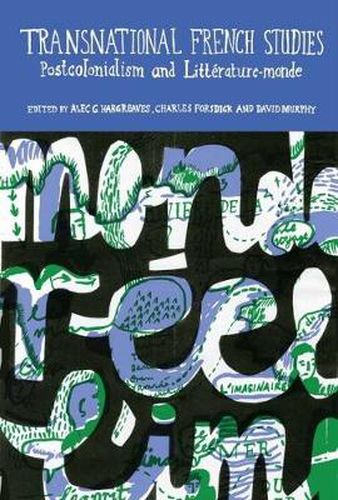Readings Newsletter
Become a Readings Member to make your shopping experience even easier.
Sign in or sign up for free!
You’re not far away from qualifying for FREE standard shipping within Australia
You’ve qualified for FREE standard shipping within Australia
The cart is loading…






The 2007 manifesto in favour of a Litterature-monde en francais has generated new debates in both francophone and postcolonial studies. Praised by some for breaking down the hierarchical division between French and Francophone literatures, the manifesto has been criticized by others for recreating that division through an exoticizing vision that continues to privilege the publishing industry of the former colonial metropole. Does the manifesto signal the advent of a new critical paradigm destined to render obsolescent those of francophone and/or postcolonial studies? Or is it simply a passing fad, a glitzy but ephemeral publicity stunt generated and promoted by writers and publishing executives vis-a-vis whom scholars and critics should maintain a skeptical distance? Does it offer an all-embracing transnational vista leading beyond the confines of postcolonialism or reintroduce an incipient form of neocolonialism even while proclaiming the end of the centre/periphery divide? In addressing these questions, leading scholars of French , Francophone and postcolonial studies from around the globe help to assess the wider question of the evolving status of French Studies as a transnational field of study amid the challenges of globalization.
$9.00 standard shipping within Australia
FREE standard shipping within Australia for orders over $100.00
Express & International shipping calculated at checkout
The 2007 manifesto in favour of a Litterature-monde en francais has generated new debates in both francophone and postcolonial studies. Praised by some for breaking down the hierarchical division between French and Francophone literatures, the manifesto has been criticized by others for recreating that division through an exoticizing vision that continues to privilege the publishing industry of the former colonial metropole. Does the manifesto signal the advent of a new critical paradigm destined to render obsolescent those of francophone and/or postcolonial studies? Or is it simply a passing fad, a glitzy but ephemeral publicity stunt generated and promoted by writers and publishing executives vis-a-vis whom scholars and critics should maintain a skeptical distance? Does it offer an all-embracing transnational vista leading beyond the confines of postcolonialism or reintroduce an incipient form of neocolonialism even while proclaiming the end of the centre/periphery divide? In addressing these questions, leading scholars of French , Francophone and postcolonial studies from around the globe help to assess the wider question of the evolving status of French Studies as a transnational field of study amid the challenges of globalization.